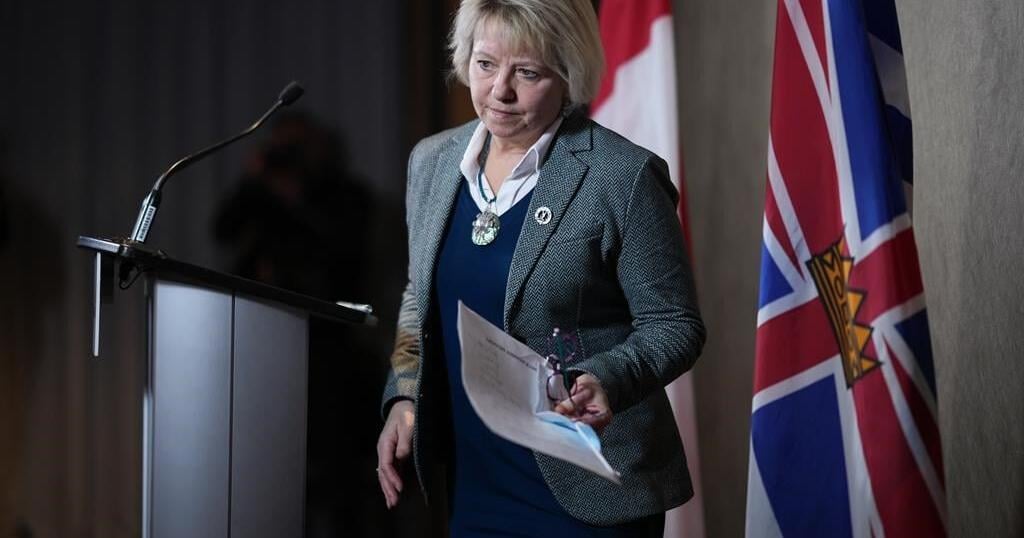The teenager who tested positive for bird flu in British Columbia is in critical condition and “experiencing acute respiratory distress” while being treated at B.C. Children’s Hospital, the provincial health officer says.
Dr. Bonnie Henry said Tuesday contact tracing being conducted has not identified anyone else linked to the case of the teen who has fallen ill.
Henry said it’s very likely that the infection — the first presumptive human case of avian flu contracted in Canada — was set off by exposure to either a sick animal or something in the environment.
“Having said that, I must caution that there is a very real possibility we may not ever determine a source,” she said. “But at this point, we have a number of leads that we’re following, and we will be tracking down every one.”
The teen, who lives in the Fraser Health region south of Metro Vancouver, first reported symptoms on Nov. 2 and was admitted to hospital on Nov. 8 as their condition worsened.
Henry said the sick teen was not on a farm, and there are no obvious links or contacts to commercial poultry flocks to quickly determine the exact source of the infection.
B.C. is currently facing another wave of avian flu infections in commercial poultry operations, with Henry saying about 26 premises are currently affected.
Infections among commercial flocks have jumped in recent weeks as migratory birds fly south for winter through the region, which Henry said coincides with the current wave of avian flu infections that is concentrated in the Fraser Valley.
The Canadian Food Inspection Agency said about 6.4 million birds in B.C.’s domestic flocks have been impacted by the avian flu since the spring of 2022.
Henry said 12 other people have been tested for avian flu, including medical workers who came into contact with the teen, whose gender has not be disclosed.
The provincial health officer said that infection in a human — caused by the H5N1 strain of avian influenza — is rare, with the only other case recorded in Canada being in Alberta in 2014 discovered in a person who likely contracted the virus while travelling in China.
Health Canada said that person died from the infection.
Henry said there have been 46 confirmed cases of H5N1 infections in the United States this year, but the vast majority of them were cattle workers in California, Oregon and Washington who were likely infected by the virus being transmitted from birds to dairy cows then to humans.
Infections take place when the virus is inhaled, and Henry said cases show human-to-human transmissions have been rare and infections appear to pose the highest danger to younger people.
“So, what does this mean for most people here in British Columbia? We don’t see right now that there’s a risk of a lot of people being sick,” Henry said.
“One of the important things that we need to do right now — recognizing that this virus is circulating in wildfowl, so geese and ducks primarily — is to be sure that if you’re in contact with sick birds or dead birds, that you don’t touch them directly,” she added.
“Keep pets away from them. … There was recently a dog, for example, in Ontario that became infected by eating a dead bird or biting a dead bird. And if the dog becomes infected, they can pass it on to humans as well.”
Those who find dead birds on their property are asked to contact the BC Wild Bird Mortality Line, while suspected infections in pets should be treated by a veterinarian or the BC Animal Health Centre.
This report by The Canadian Press was first published Nov. 12, 2024.
